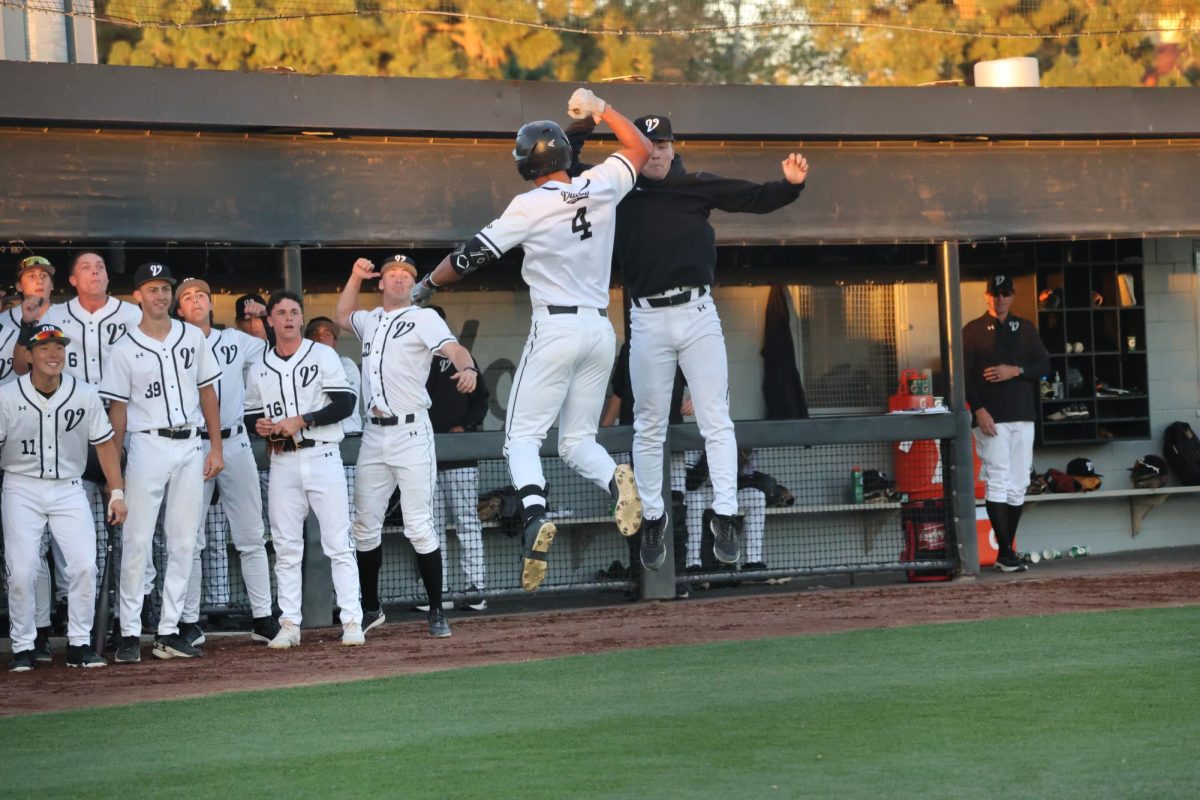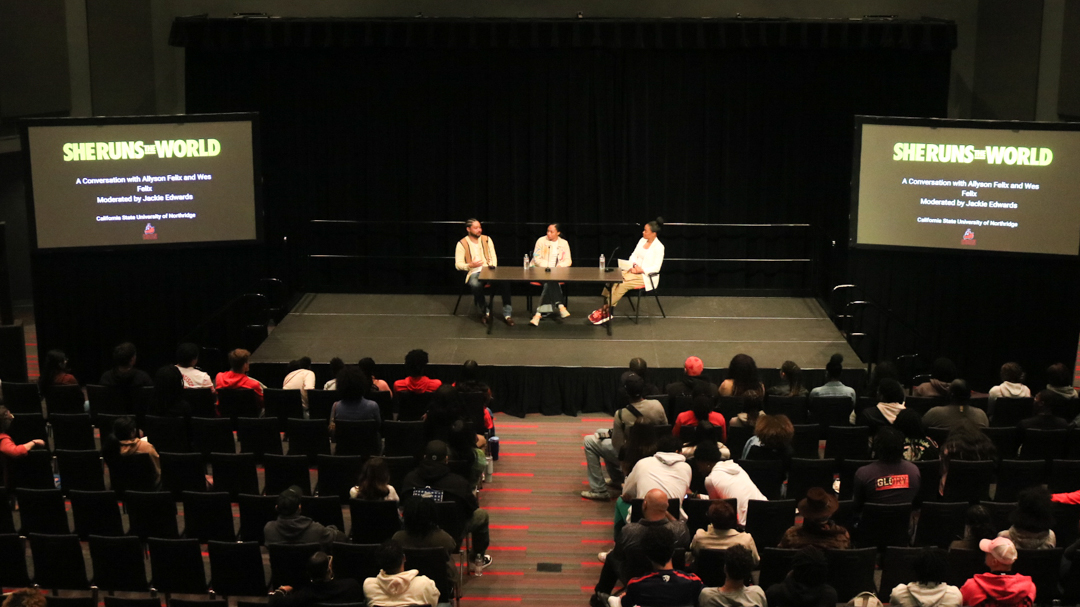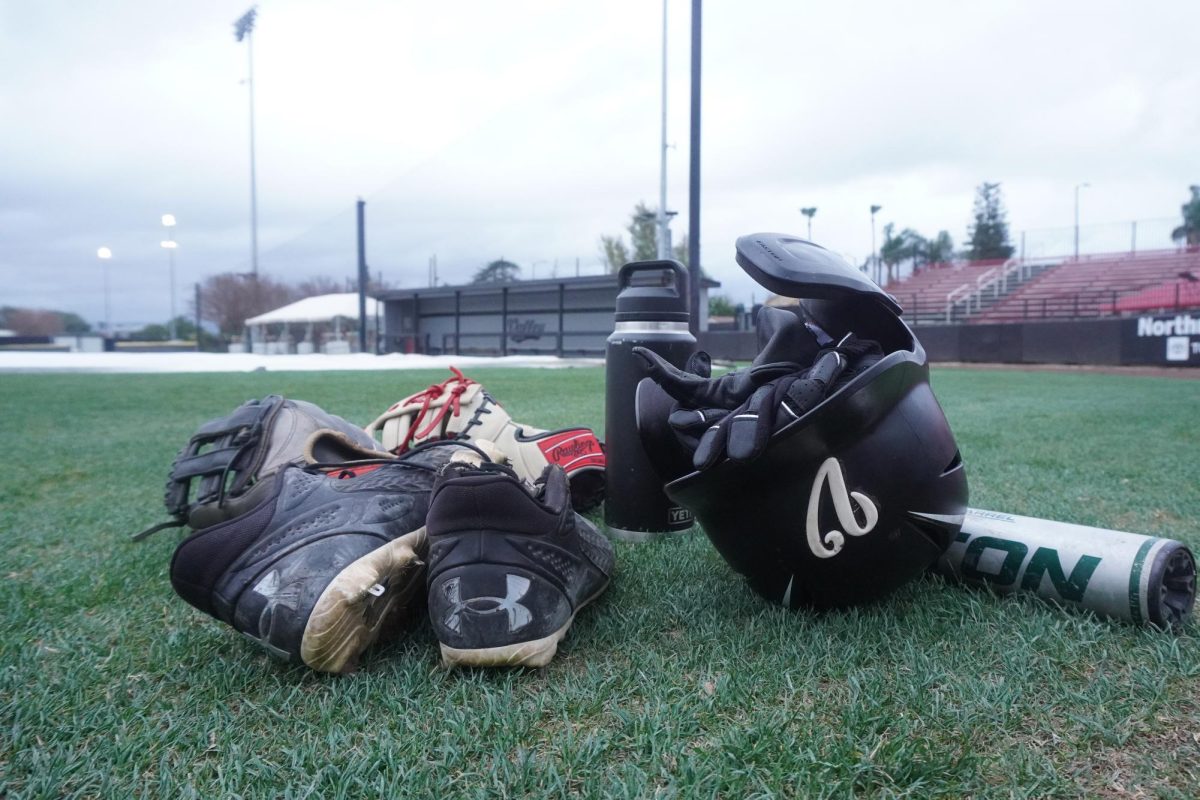
At CSUN, only the men’s and women’s basketball teams have benefited from an NCAA rule implemented in August by way of a card that can be used once a day exclusively at Geronimo’s, a campus dining hall.
The regulation also allows the teams’ coaches the ability to provide food at the departments’ or their own expense.
In April the NCAA passed a ruling allowing schools to provide walk-on and scholarship student-athletes unlimited meals and snacks, yet did not present the financial backing to create any major changes.
Effective early August, the rule aimed to provide busy student-athletes with the nutrition they needed to fuel their rigorous workout regimens.
Ryan Swartwood, assistant athletic director for administration, said the campus is coinciding with the NCAA initiative.
“We are always exploring ways to fuel our student-athletes with the best nutrition possible,” Swartwood said. “After passage of the NCAA rule, we have implemented a pilot nutrition program … for both our men’s basketball and women’s basketball programs.”
Miles Nolan-Webb, freshman point guard for the men’s basketball team, enjoys the convenience of the new meal card given to the team.
“It’s easy,” Nolan-Webb said. “If you don’t feel like cooking you can just go to Geronimo’s. You just swipe it and you get your meal.”
Though, as of now, men’s and women’s basketball are the only teams receiving such cards on campus, there are tentative plans to further the initiative.
“In the future, we will explore expanding this program to other sports here at CSUN,” Swartwood said.
Greg Moore, head baseball coach at CSUN, said the newly enacted initiative is “not a very big change” and as of now the baseball team has not benefited from it.
According to Moore, the NCAA did include language that made it permissible for coaches to buy food for their athletes, where they could not have done so before.
The regulation is more of a “hands-off approach” that allows schools to offer meals and snacks at the “ability of the department,” Moore said.
Colleges can decide whether or not to provide meals and to what extent they will do so, at their own discretion and financial ability, according to Moore.
The new rule lacks the financial backing for it to be fully enacted right away.
“No funding is being provided to institutions as part of this new rule, so the amount of funds dedicated to nutrition is left up to the individual institutions,” Swartwood said.
Barbara Martinez, a compliance officer at Cal Poly, said the rule has not affected student-athletes at Cal Poly outside of coaches providing students meals and snacks incidental to participation.
She reiterated that the new regulation made it permissible for coaches to provide meals and snacks, at their own expense during the school year.
“If a practice is overly hard,” Martinez said, “They can provide a smoothie or something at their own expense.”
Hafsa Kamara, a 22-year-old kinesiology major, said that she often does not get the adequate nutrition for her level of physical activity. As a track and field runner, Kamara said that a busy school and athletic schedule left little time for healthy food that would better prepare her for meets.
“With our schedule we don’t have much time,” Kamara said. “What we eat right before or even the day before affects how we perform.”
Though Kamara expressed interest in a meal plan program similar to that offered to campus basketball players, she said the effectiveness really depends on what athletes choose to buy and eat while on campus.
She said a meal card plan “would help, but with the nutrition we have on campus, it depends on what you choose.” Kamara said, “Our nutrition is good but could be better.”





